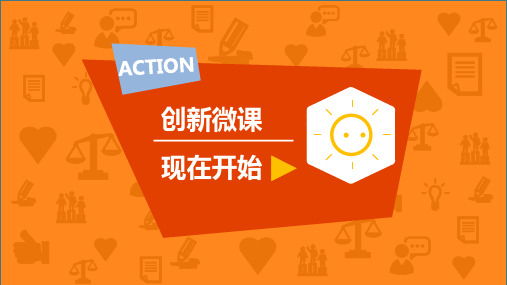人教新目标九年级 Unit 6 语法精讲新目标.rar
- 格式:doc
- 大小:25.00 KB
- 文档页数:2

新目标九年级Unit 6 When was it invented? 讲义一、词性转换Section A1. electricity → (adj.) electric2. pleasure → (adj.) pleased3. accidental → (n.) accident4. ruler → (v.) rule5. boil → (adj.) boiling/ boiled6. national → (n.) nation7. low → (反义词.) high8. translate → (n.) translation9. sudden → (adv.) suddenly10. musical → (n.) music 11. instrument → (n.) instrumental Section B12. salty → (n.) salt13. Canadian → (n.) Canada14. divide → (n.) division15. popularity → (adj.) popular16. hero → (adj.) heroic17. professional → (n.) profession二、短语归纳1. the style of……的样式2. such a great invention 如此伟大的一项发明3. be used for被用于…4. by accident 偶然;意外地5. think of/ about 想;考虑6. fall into 落入;陷入7. some time 一段时间8. less than少于;不到9. take place发生;出现10. the popularity of……的普及11. without doubt毫无疑问12. at a low price以低价13. translate…into…把…翻译成…14. all of a sudden突然;猛地15. by mistake错误地;无意中16. in the end最后17. a cook called George Crum一个名字叫乔治克拉姆的厨师18. more than多于;超过19. divide…into…把…分成…20. at the same time同时21. stop…from doing…阻止…做…22. dream of/ about梦想;向往23. not only…but also…不但…而且…24. the number of……的数量25. more and more越来越26. look up to钦佩;仰慕27. achieve one’s dreams实现某人的梦想28. take notes记笔记29. be used to do sth. 被用于做某事30. lead to导致;导向三、句型集萃1. It is said that + 从句据说…2. It is believed that + 从句人们认为…3. ask sb. (not) to do sth.要求某人(不要)做某事4. teach sb. to do sth. 教某人做某事5. need to do sth. 需要做某事6. encourage sb. to do 鼓励某人做某事三、重点句子1. the style of the shoes 鞋的样式★style短语:in style 流行的;时髦的out of style 过时的a life style生活方式2. --- Can you help me think of an invention? 你能帮我想个发明吗?★★--- My pleasure! 乐意效劳!辨析:pleasure, pleased, pleasing, please与pleasantpleasure,名词,“愉快,高兴”,多用于口语:It’s my pleasure./ With pleasure.pleased,形容词,“高兴的,喜欢的”,修饰人;pleasing,形容词,“令人愉快的,讨人喜欢的;使人满意的,合意的”,修饰物;please,及物动词,“使高兴、满意、愉快”等;不及物动词,“高兴,愉快”等;pleasant,形容词,定语,“令人高兴的,令人愉快的”,修饰事物,不能修饰人。



Unit 6 When was it invented? 【重点单词】1. project n. 项目,工程;2. pleasure n. 高兴,愉快;3. daily adj. 日常的,每日的;4. mention v. 提到,说到;5. nearly adv.几乎,差不多;6. boil v. 煮沸,烧开;7. remain v. 保持不变;剩余;8. national adj.国家的,民族的;9. low adj.低的,矮的;10. translate v. 翻译;11. lock v.锁上;n. 锁;12. sudden adj. 突然的13. crispy adj. 脆的;酥脆的;14. salty adj. 咸的;15. sour adj. 酸的,有酸味的;16. customer n. 顾客。
17. Canadian 加拿大的,18. divide v. 分开,分散;19. hero n 英雄,男主角;20. professional adj. 职业的,专业的;【重点词组】1. shoes with special heels 特殊后跟的鞋子2. hot ice cream scoop 热的冰其淋勺子3. run on electricity 电动的4. be used for 被用作5. the subject for my school project 学校项目的课题6. our daily lives 我们的日常生活7. have a point 有点道理8. by accident 偶然,意外地9. over the open fire 在火堆上10. fall into the water 落入水中11. take place 发生12. without doubt 毫无疑问13. at a low price 以一个很低的价格14. translate the book into different language 把书翻译成不同种的语言15. all of sudden 突然16. by mistake 错误地17. a much-loved and active sport 一个深受喜爱并且积极的运动18. divide…into 把…分开19. stop sb. from doing sth. 阻止某人做某事20. look up to 钦佩,仰慕21. the professional basketball groups 职业篮球机构22. use someone else’s idea 借用其他人的想法【重点句式】1. I think the TV was invented before the car. 我认为电视是在轿车之前发明的。


Unit 6 When was it invented?Grade level: 9th GradeCourse: EnglishTextbook: New Standard English, Book 9, published by People's Education Press.Objectives:To introduce students to the use of the past tense in English languageTo help students improve their reading, writing, listening and speaking skills in English.To encourage students to use their imagination and creativity in discussing technological inventions and their impact on human life.To enhance students' understanding of the significance of technological advances throughout history.Materials:Textbook: New Standard English, Book 9, published by People's Education Press.Whiteboard or blackboard and markers.Handouts with comprehension questions related to the reading.Audio or video materials related to the topic.Pictures or diagrams of some of the most important technological inventions in history. Procedure:I. Warm-up activityThe teacher begins the lesson by asking students about some of the most important technological inventions they use in their daily life, and when they were invented.The teacher then writes some of the students' answers on the board.II. Pre-reading activityThe teacher presents some pictures or diagrams of technological inventions from different time periods and asks students to guess when they were invented.The teacher then divides the class into groups and asks them to discuss the impact of these inventions on human life.III. Reading comprehensionThe teacher asks students to read the text "When Was It Invented?" from their textbook.The teacher then distributes handouts with comprehension questions related to the reading and asks students to answer them individually.The teacher then discusses the answers with the class.IV. Vocabulary buildingThe teacher asks students to find some new words or phrases from the reading, and to write them on the board.The teacher then asks students to work in pairs and use the new vocabulary words in sentences.V. Listening comprehensionThe teacher plays an audio or video clip related to the topic, and asks students to listen carefully. The teacher then distributes handouts with comprehension questions related to the clip and asks students to answer them.VI. Writing activityThe teacher asks students to write a short paragraph about one of the most important technological inventions in history and its impact on human life.The teacher then asks students to exchange their writing with a partner, and to provide feedback on each other's writing.VII. Follow-up activityThe teacher concludes the lesson by asking students to share their opinions about the impact of technological inventions on human life, and how they think technology will continue to shape our future.Assessment:The teacher can assess students' performance through the following:Observing their participation in class discussions and group activities.Reviewing their answers to comprehension questions.Assessing their writing activity and providing feedback.Observing their use of new vocabulary words in sentences.Homework assignment for "When Was It Invented?" lesson:Research and write a brief report about one of the most important technological inventions in history and its impact on human life.Write a dialogue between two people discussing the importance of technological inventions in their lives.Watch a video or read an article about a recent technological invention and write a summary of it.Create a timeline of technological inventions from prehistoric times to the present day, including the approximate date of each invention and its impact on human life.Choose one of the vocabulary words from the lesson and write a short story using that word correctly.Practice reading aloud the text "When Was It Invented?" from your textbook, paying attention to your pronunciation and intonation.Think about how technology has changed your life and write a short paragraph about it.Note: Students should submit their homework assignments in the next class meeting.。
九年级英语Unit6【单元目标】Ⅰ.单词与短语单词prefer gentle remind heart latest feature display interest whatever miss suggest energy honest course suit expect taste actually mainly laboratory type cancer increase risk main shock短语1.prefer… to…比起…更喜欢…2.to be honest 老实说;说实在的3.remind of 提醒;使记起4.on display 展览;陈列5.be bad for 对…有害;有害于6.stay away from 与…保持距离7.be in agreement 意见一致8.dance to 随着…跳舞9.sing along with 伴随…唱歌10.be important to sb. 对某人重要11.be sure 确定;一定12.get together 聚集在一起13.cause cancer 致癌14.taste good 尝起来好Ⅱ.目标句型:---What / which kind of + n. + do / does sb like?---Sb like(s) / love(s) / prefer(s) / enjoy(s) +n. + that从句(表示一种限制)Ⅲ.语法定语从句(见最后一页)【重点词汇】1. prefer动词更喜欢宁愿a)prefer sth.更喜欢某事I prefer English. 我更喜欢英语。
b)prefer doing宁愿做某事To do 强调特定的或某次具体的动作He preferred reading at home on rainy days.c)即对某种行为的“偏爱”The boy preferred not to god)We prefer you to stay for dinnere)I prefer dogs to cats. 与猫相比我更喜欢狗。
本单元语法精讲
在八年级的学习中,同学们已经认识了宾语从句和状语从句,现在我们来认识一位从句家族的新成员,它叫定语从句。
让我先介绍一下吧。
1、结构:所谓定语,就是名词和代词的修饰成分,如a good boy中good是定语,bad weather中bad是定语。
当定语需要用一个句子才能表达完整时,就出现了定语从句。
与前面的good和bad的位置不同,定语从句要放在名词或代词的后面,这时的名词或代词叫做先行词,而从句应翻译在先行词的前面。
如:I know the girl who is running. 我认识那个正在跑步的女孩。
(先行词)(定语从句)(定语从句)(先行词)
Can you see the book that is on the table? 你看见桌子上的那本书了吗?
(先行词)(定语从句)(定语从句)(先行词)
2、关系代词的使用:以上两个例句中的who 和that就是定语从句中的关系代词。
关系代词在先行词和定语从句之间起连接作用,同时又作定语从句的一个结构,代替先行词在从句中充当的成分。
同学们可以参照下表来学习:
关系代词指代范围例句
that:在从句中可以作主语或宾语指代人
①That is the PE teacher that plays soccer best.
(作主语)这就是踢足球最棒的那位体育老师。
②He isn’t the person that I talked to just now.
(作宾语)他不是刚才我与之谈话的那个人。
指代物
③I like the cat that has four white feet.
(作主语)我喜欢那只长着四只白色爪子的猫。
④This is the cat that I like best.
(作宾语)这就是我最喜欢的那只猫。
who:在从句中可以
作主语
whom:在从句中可以作宾语指代人
⑤That is the PE teacher who plays soccer best.
(作主语)这就是踢足球最棒的那位体育老师。
⑥He isn’t the person whom I talked to just now.
(作宾语)他不是刚才我与之谈话的那个人。
which:在从句中可以作主语或宾语指代物
⑦Can you show me the clothing store which is the nearest?
(作主语)你能指给我最近的服装店吗?
⑧The book which you’re looking for is Tom’s.
(作宾语)你正找的那本书是汤姆的。
whose:在从句中作定语指代人
⑨Do you know the boy whose mother is our math teacher?
你认识那个他妈妈是咱们数学老师的男孩吗?
指代物
⑩My uncle has bought a new car whose color is light blue.
我叔叔买了一辆颜色是浅蓝色的新车。
使用关系代词时要注意,关系代词在从句中作宾语时是可以省略的,如上表中的②④⑥⑧四个例句,还可以理解为:在从句中已有独立主语的情况下,关系代词可以省略。
沙场点兵:检验一下你自己吧!
1.The town _______ we wisited a few years ago is much large than before.
A. it
B. who
C. which (05,四川)
2. Mianyang is a beautiful city ______ attracts millions of tourists each year.
A. where
B. which
C. what
D. who (06,绵阳)
3.I like the music _________ I can dance to.
A. that
B. whose
C. when (06,北京海淀区)
4.---Do you like the red car ______ is made in Tianjin ?
---Sure, it looks terrific.
A. where
B. who
C. which
D. when (06,大连)
5.I’m a football fan. I’m interested in everything ______________is about the 2006 World Cup.
A. who
B. that
C. where (06,哈尔滨)
6.一Is the girl______is interviewing the manager of that company your friend?
一Yes,she is a journalist from CCTV.
A. whom
B. which
C. who
D. whose (06,天津)
7.The spaceship _______ will be launched (发射) in 2008 will be called Shenzhou VII.
A. who
B. that
C. what
D. when (06,荆门)
8. The number of people ________ lost their lives in Indonesian earthquake(印尼地震)reached as many as 6200.
A. which
B. who
C. whom
D./ (06,乐山)
9. The movie is about a true story _____ happened in Korea in 1945.
A. it
B. who
C. which
D. when (05,台湾)
10. A. A girl called Liu Fangyan takes good care of her blind mother. 同意句变化
B. The girl who ______ _______ Liu Fangyan looks after her blind mother carefully. (06,荆门) 答案:
1、C
2、B
3、A
4、C
5、B
6、C
7、B
8、B
9、C
10、is called。